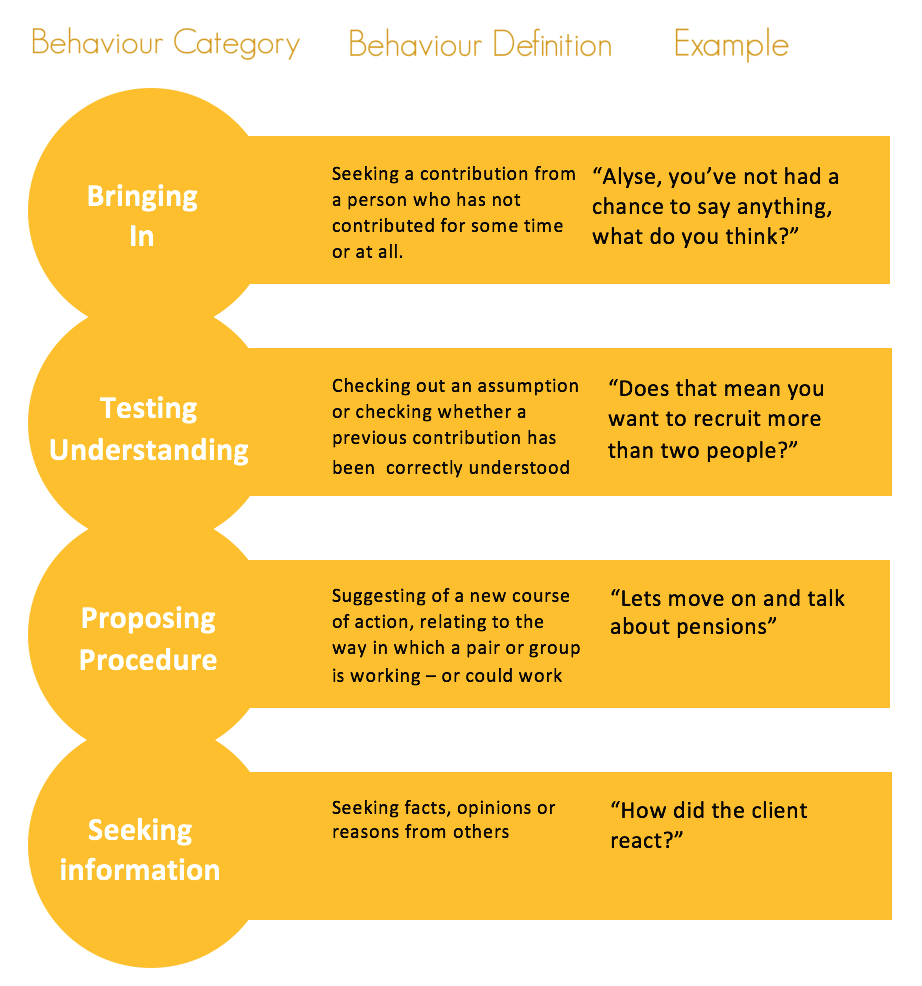Do you ever try to estimate how much of your life is spent in meetings?
Or do you stop to consider the return on that investment? How often do you arrive late, or leave early? Being a busy person goes with the turf when you’re in business, but could you be getting more from your most precious resource of all – your time?
Meetings are more often than not synonymous with wasted time and little productivity. You may be there in body, but your brain is frequently wandering, veering off course and tending to distractions that eat into your valuable working time. As the meetings cover the same ground time after time, failing to come to solid consensus, you seeing little point in being there and you check out.
Help is at hand, with the opportunity to revolutionise the way we do the business of meetings in four simple steps:
Manage participation
Make certain that everyone in attendance has their chance to speak; why have them attend if they are going to contribute nothing to the conversation? Use bringing in to facilitate input from anybody who has yet to be heard, and if need be, use shutting out to ensure the talkative participants don’t overstay their welcome in the spotlight.
Ensure clarity
Meetings sacrifice too much time to sharing information or pushing agendas, leaving far too little time to ask questions and explore perspectives, which is often far more skilful and more helpful. Make this change by testing understanding – ensure that everybody shares the same view of what is expected. Effective summarising is another very helpful behaviour, but it requires decent listening skills, so can be challenging if you’re focused on your contributions rather than others’. Demonstrating your expertise in listening shows that you pay attention, lets people know that you have understood them and provides clarity for all.
Provide structure
A well-organised meeting is like a well-organised journey: the destination and pit stops are obvious, but proposing procedure is a really helpful move that explores who will play what part, what needs doing and ensures that every base is covered. Summarising here is also very useful, akin to ensuring everybody in your convoy is familiar with the route you plan to take. Planning prevents poor performance.
Balance task and process
It’s difficult to write and direct the show as well as star in it, so don’t even try. Instead, identify where you can make a really worthwhile contribution, and where you may be better deferring to a colleague who is more learned in this particular area, or assert your presence by coordinating the others in discussion. Lead by posing questions and using behaviours such as seeking information and seeking proposals. Pay close attention and distinguish yourself by summarising the discussion in an efficient and informative way.
Your effectiveness in interactions is shaped by the behaviours you use. Those we have discussed here – Bringing In, Shutting Out, Testing Understanding, Proposing Procedure, Seeking Information, Seeking Proposals and Summarising – are just a few behaviours from a group of seventeen shown by extensive research to facilitate successful meetings. Proficiency in these behaviours distinguishes top performers from the mediocre, and with collaboration being an increasingly necessary business move, expands your professional capacity to work more effectively.
Of course, using these behaviours competently takes practice, like any other skill. As they say in Papua New Guinea, Knowledge is only rumour until it’s in the muscle. Explore these behaviours, and you will soon demonstrate the value of your presence, be a more helpful leader to others, and ultimately yield an increased return on the investment of your time in meetings.
Making fundamental changes to how you work can feel awkward at first, but this is simply your brain recognising the difference between what was and what is. If you commit to a new, more expert way of operating and stick with it as you learn, you will reap what you sow. As Gandhi once said: “Be the change you want to see in the world”, or in this case in meetings. Ditch the shoulda, woulda, coulda. Bring your brain back into the meeting room and lead the change.

 About the author:
About the author:
Ally Yates is an expert in Behaviour Analysis and the interactions that define us at work. Her recently published book: Utter Confidence: How what you say and do influences your effectiveness in business (Panoma Press) draws on her rich experience as a consultant, facilitator and coach across a range of industries, providing practical examples of how behaviours improve results.








